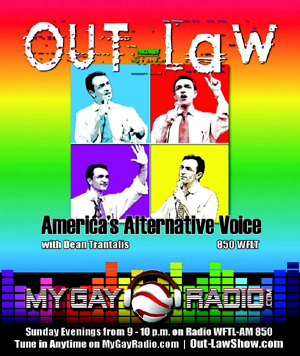By Alex Vaughn
A new study published in The Journal of Sex and Marital Therapy, produced by two professors from religious universities, claims that some people can change their sexual orientation.
Psychologists Stanton L. Jones (Wheaton College, IL) and Mark A. Yarhouse (Regent University, VA) conducted the research initially with ninety-eight individuals seeking sexual orientation change over a period of six to seven years.
“Evidence from the study suggested that change of homosexual orientation appears possible for some and that psychological distress did not increase on average as a result of the involvement in the change process,” the authors of the study wrote.
Both of the professors’ universities have connections to Exodus Ministries, which is a religious program designed to help “individuals and families impacted by homosexuality.”
All of the participants were willing and seeking to change their orientation. Exodus said, “freedom from homosexuality through the power of Jesus Christ” was why people had joined the program.
According to the study, thirty-five people quit the program, and one person went back to “embracing a gay identity.” Still, the authors continued to follow the remaining sixty-five participants and track the “change process” over the time period.
Yarhouse explained, “It’s a study for people who are highly religious who are distressed by the experience of attraction.” He went on to say, “They want to know, is it even possible? What might I experience if I go into religious-based ministry?”
The ministries in question were throughout the US and totaled sixteen locations.
The study claims that 53 percent were classified as successful outcomes. Of those outcomes, 23 percent reported success in the form of successful conversion to heterosexual orientation, and 30 percent reported stable behavioural chastity with substantive dis-identification with homosexual orientation. Just 20 percent reported to fully embracing a gay identity at the end of the study.
At the beginning of the study, Jones and Yarhouse conducted a review of both any change in orientation and stress levels in the beginning of the study and a total of five times throughout.
They conducted the study by interviewing the participants and consistently asking the same questions annually about sexual attraction, emotional or romantic infatuation and sexual fantasies. They drew results by using two different scales, one devised by sex researcher Alfred Kinsey and another measure called the Shively-DeCecco scale.
“The findings of this study appear to contradict the commonly expressed view that sexual orientation is not changeable,” the professors claimed.
The study has come under fire from experts and from gay advocacy groups. The former have claimed that the study is flawed because the change that occurs is only temporary and is detrimental to the psyche. Eli Coleman, professor and director of Human Sexuality at the University of Minnesota Medical School, was unconvinced by the findings.
“We’ve been through this over and over,” he said. “You can get behavioral changes, but that’s not orientation change. You can get short-term behavioral change. It’s not sustained.”
The study also went against the American Psychological Association, which in a statement in 2005 clarified that homosexuality was not changeable. The association had also stated that there was no evidence that conversion or reparative therapy aimed at changing sexual orientation was safe or effective.
“The APA was making pretty strong statements that orientation really doesn’t change and that attempts to do so would be harmful,” said Yarhouse. “They were presenting absolutist claims about this immutability of orientation and great risk of harm. They were ideal questions for research. Can people change? Or is it truly an immutable characteristic?”
Jones was also quick to suggest that “the forceful way in which the secular mental-health communit is saying change is impossible and harmful is just not well-advised.”
The authors made clear that though advocacy groups and gay people may find religious conversion courses “deeply offensive,” there is a clear set of people who don’t want to be gay or part of the LGBT community. He went on to address the APA’s statement by saying, “I’d like to see mental health organizations to show greater respect for diversity for how a person chooses to live their life and live this out,” Yarhouse said.
The researchers, who presented the results on Thursday in Nashville, found that not everyone experienced a successful change through the religious ministry.
“Not even a majority is successful,” Jones pointed out to CitizenLink, a publication of Focus on the Family, “but a very substantial group of people report fairly dramatic change.”
Jones also pointed out that change does not come easy even for the successful ones.
“It needs to be said that this process is not like a light switch that switches from one switch point to the other,” the professor said, according to CitizenLink. “Life is still complicated for these people, and some still have some residuals of their homosexual attractions. However, they are people who report being able to function as heterosexuals, they’re happy with their marriages, and they feel that their lives have changed dramatically.”
There have been claims of bias, but both professors stated they took the research wherever the results directed them. They also said they wanted the findings to help people keep an open mind to the idea that change in sexual orientation is possible.
“For an individual who feels they need to pursue change, particularly on a religious basis, our study encourages them to pursue that path,” they said.



